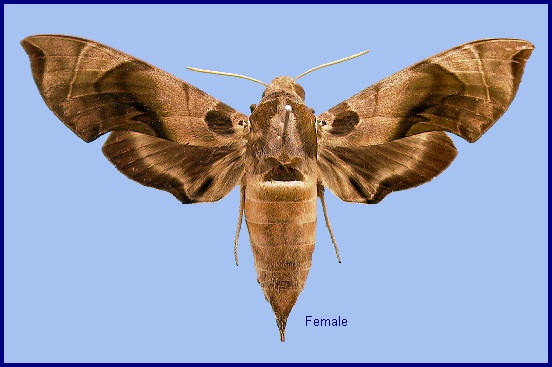
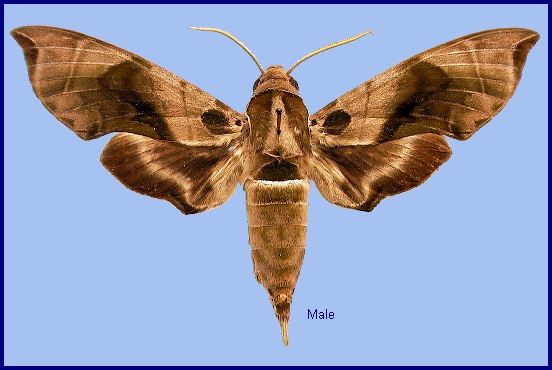
Darapsa placida Walker, 1856, List Specimens lepid. Insects Colln Br. Mus. 8: 186. Type locality: [Indonesia,] Samatra [Sumatra].
Synonym. Darapsa placida Walker, 1856.
Synonym. Daphnis angustans R. Felder, 1874.
Synonym. Choerocampa hesperus Boisduval, 1875.
Synonym. Daphnis horsfieldii Butler, 1876.
Synonym. Daphnis andamana Druce, 1882.
Synonym. Daphnis torenia rosacea Rothschild, 1894.
Synonym. Deilephila jamdenae Debauche, 1934.
Wingspan: 66--84mm. Forewing upperside similar to Daphnis hypothous hypothous but antemedian line midway between basal patch and proximal edge of median olive-green area; edges of median area pattern elements diffuse and apex lacking a white spot. Outer margin of forewing more obviously excavated below apex than in other species of Daphnis. Forewing underside without white spots.
In the male genitalia, harpe with distal process curved dorsally, not or feebly dentate. Phallus apical process with short dentate lobe on left and a long oblique right lobe, curved ventrad, dentate at apex.
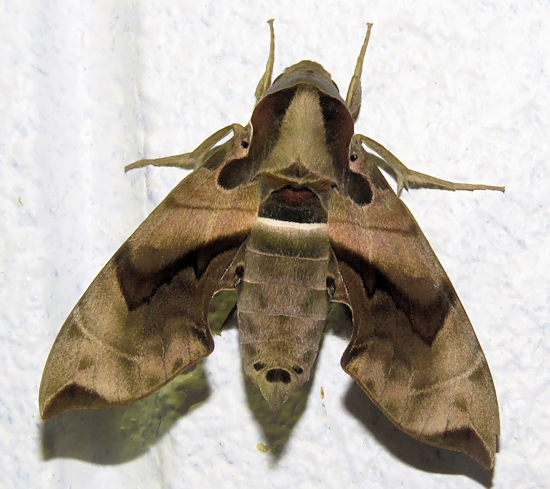
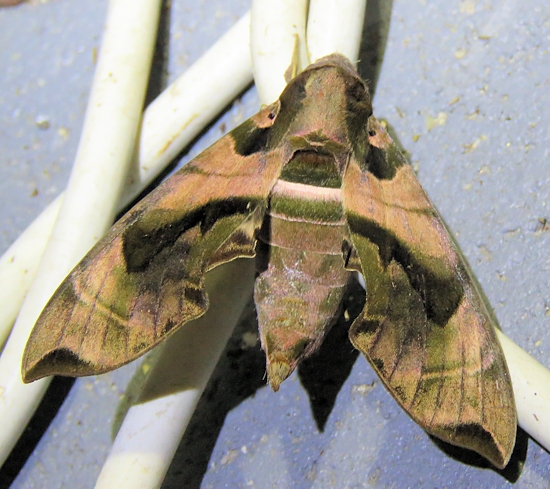
China: vii-viii (Hainan).
OVUM:
LARVA: In the final instar most are green with a stout, curved, tuberculate, black-tipped, yellow horn. A pale yellow dorso-lateral stripe runs from segment 2 to the base of the horn. This is edged below with sky-blue dots set in a black background. A fainter ventro-lateral yellow line is also present, as is a pale line edging the anal flap. Spiracles orange (Bell & Scott, 1937).
PUPA: More slender than that of Daphnis hypothous. Cremaster almost identical. Colour tawny-ochraceous, spotted with black on abdomen (Bell & Scott, 1937).
Larval hostplants. Alstonia and Tabernaemontana (Apocynaceae) (Inoue, Kennett & Kitching, [1996] 1997).
Unknown.
China: Hainan (Chengmai; Sanya).
Nicobar and Andaman Islands (Kailash Chandra & Rajan, 2004; Singh, Ahmad & Chandra, 2021), Thailand, southern China (Hainan Island), central Vietnam (Le & Vu, 2024), Philippines (Inoue, 1996), Indonesia (Sumatra, Java, Bali, Flores, Timor), northern Australia, Vanuatu, New Caledonia, Loyalty Islands, Guam as a colonist (Swezry, 1942), and Hawaii as a more recent colonist (Rubinoff & Kitching, 2015).
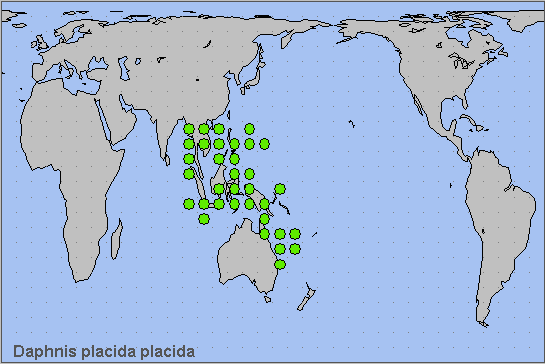
 Return to Sphingidae of the Eastern Palaearctic species list
Return to Sphingidae of the Eastern Palaearctic species list